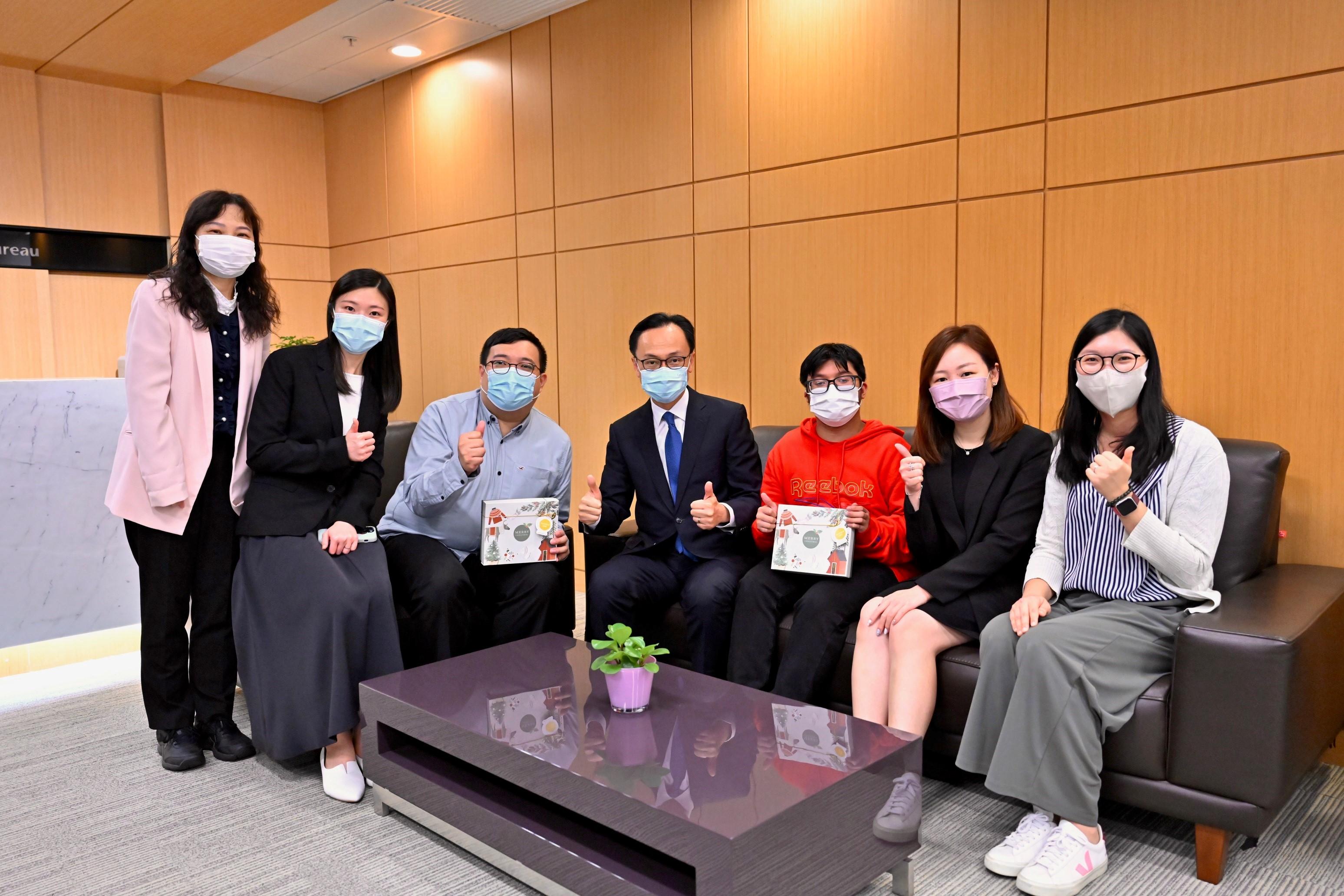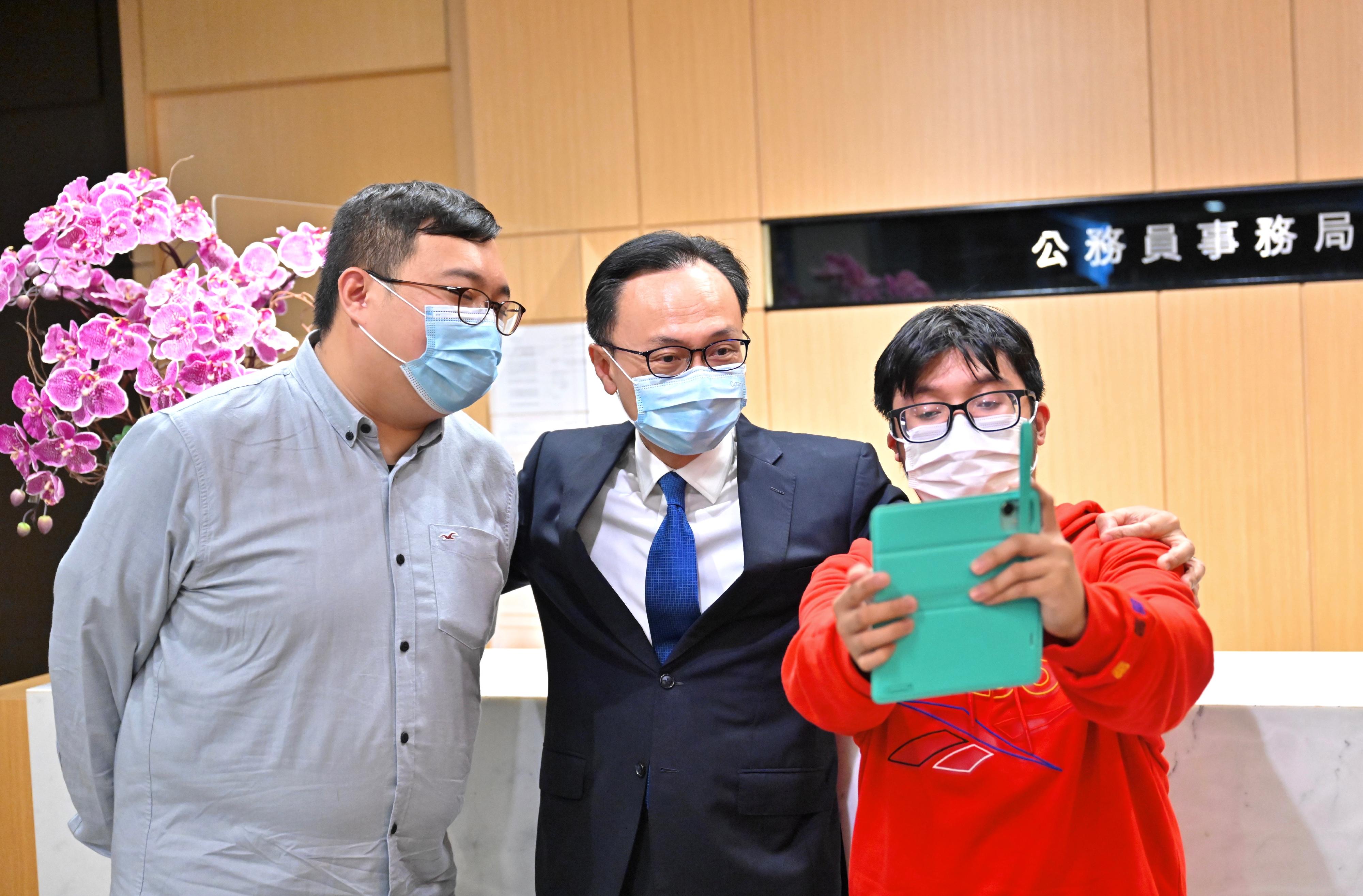Internship opportunities for Shine Skills Centre students (with photos)
The Secretary for the Civil Service, Mr Patrick Nip, today (November 30) met with two students from the Shine Skills Centre of the Vocational Training Council who are participating in this year’s government internship scheme to learn about their internship experience, and encouraged them to continue to learn and equip themselves for the future.
Mr Nip said the Civil Service Bureau (CSB) launched this internship scheme in 2016 to enable students with special education needs to have internship opportunities in the Government to gain practical work experience, as well as to allow civil service colleagues to better appreciate their potential. Since the implementation of the scheme, 490 student interns have participated in it.
This time, 32 students from the Shine Skills Centre were deployed to 23 government bureaux and departments in October for internships lasting around eight weeks. Among them, Mr Ryan Ramirez and Mr Chan Ho-ting were assigned to work in the CSB. They both consider that the scheme has provided valuable internship experiences for them. Apart from gaining new skills, they have been able to achieve personal growth.
Mr Ramirez has been deployed to the Supplies Registry and he said the internship is his first working experience. He said that he has gained tremendous satisfaction from being able to follow instructions and complete the assigned tasks smoothly. He also thanked his colleagues and mentors for their patience and guidance, which has made his internship joyful and fulfilling.
Mr Chan, who studied Commercial and Retailing Service at the Shine Skills Centre, was tasked to provide administrative assistance in hosting events and training courses at the Training and Development Section of the General Grades Office. He said that he had been given a lot of support and encouragement from his colleagues during his internship, which enabled him to face different challenges readily and equipped him with the confidence to work in different environments in the future.
Mr Nip said he was pleased to know that, apart from Mr Ramirez and Mr Chan, students deployed to other bureaux and departments have also made efforts in gaining new knowledge and worked actively during their internships. Their good conduct and work performance has been highly commended by their colleagues and mentors of participating departments.
He remarked that the scheme provides students with practical working experience to increase their competitiveness before they enter the employment market. He said he believes the students have acquired different experiences and training throughout their internships and expressed the hope that the students can apply the acquired knowledge in the future.
Unlike other government internship schemes, this internship scheme for students with special education needs includes training elements. An experienced colleague with a certain length of service is assigned to each intern as his or her mentor. The mentors brief them on government organisation and department operation, as well as provide support to make their internships more fulfilling and comprehensive so that the interns can reach their full potential.




